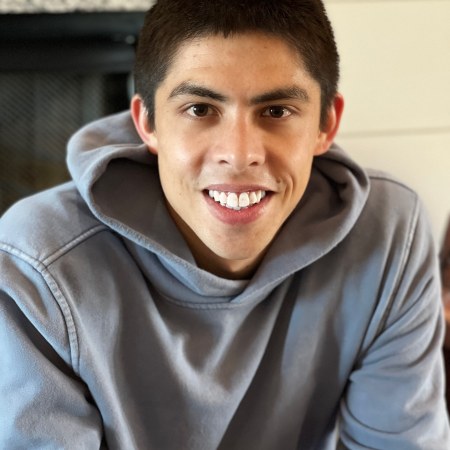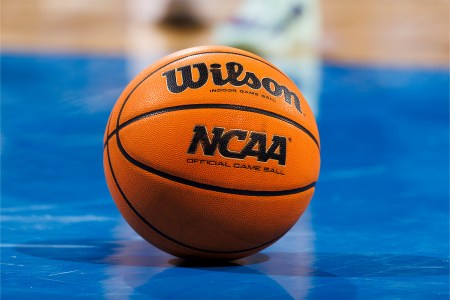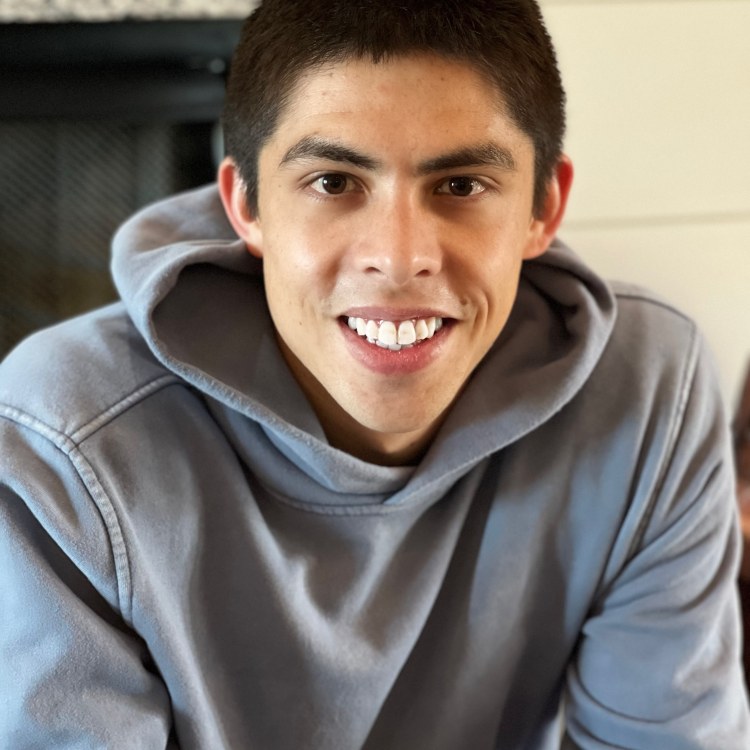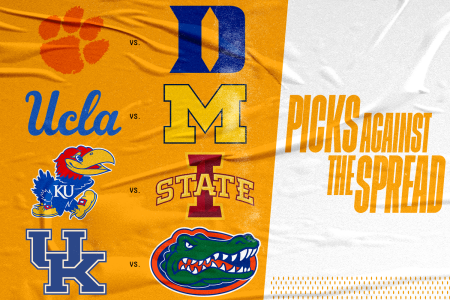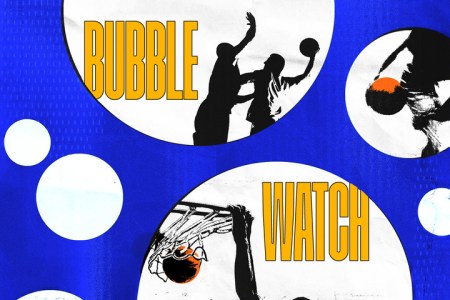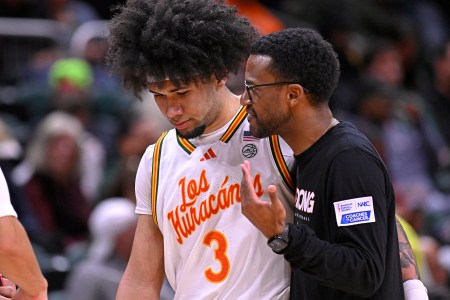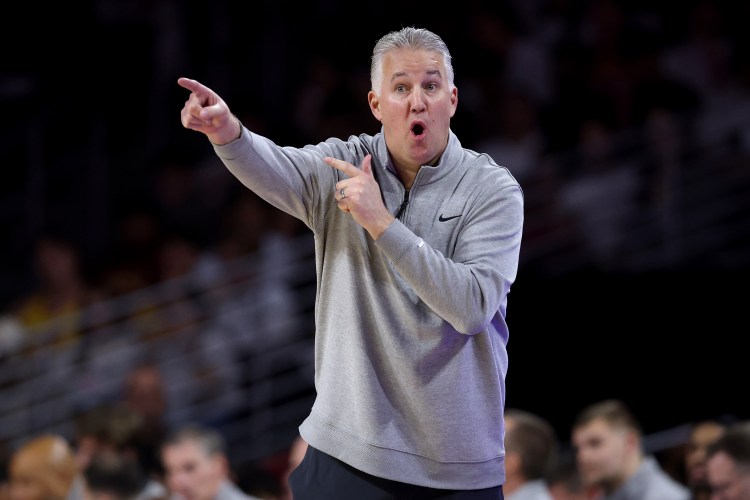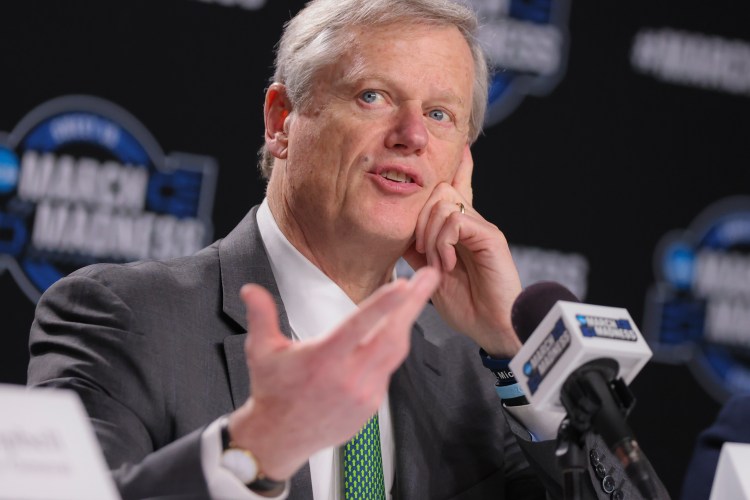It is unclear how the landmark NIL lawsuit filed by six former Florida State basketball players against their former head coach, Leonard Hamilton, will play out in court, but this much is certain: In the realm of college athletics, the reverberations could be massive.
Darin Green Jr., Josh Nickelberry, Primo Spears, Cam’Ron Fletcher, De’Ante Green and Jalen Warley filed a legal complaint alleging that they did not receive the $250,000 in NIL compensation that Hamilton promised each of them. All six plaintiffs played for Florida State during the 2023-24 season but are no longer with the program. Two exhausted their eligibility, and four transferred to other schools.
The suit also alleges that the players boycotted a practice before a February 17 game against Duke over the missed payments. According to the documents, the players “walked out of the gym” to express their frustration and “were also determined not to participate in the game” until Hamilton “panicked” and reiterated that the money would be paid the following week by his business partners, which did not happen.
“Every player on the 2023-24 FSU men’s basketball team roster relied on the promises that Hamilton made when they either decided to transfer to FSU or remain enrolled at FSU and play out the season,” the suit says. “However, as the season continued, many players, including the plaintiffs, became very frustrated by the continuous failure to perform on the myriad of promises issued by Hamilton.”
Florida State issued a statement in response to the suit on Monday afternoon, saying that the university has “worked diligently” to uncover what transpired. “Though our inquiry is not yet complete, at this point we know of no unfulfilled commitments by FSU in terms of scholarships or other appropriate benefits or the Rising Spear Collective relative to NIL payments owed to the athletes,” the statement reads. “We support Coach Hamilton’s right to defend himself against these allegations and look forward to an expeditious resolution of this matter.”
The claim brings four counts against Hamilton — breach of contract, promissory estoppel, fraudulent misrepresentation and fraudulent inducement, and negligent misrepresentations — and requests $250,000 in compensatory damages for each player and unspecified punitive and exemplary damages.
While the evidence presented does include text-message exchanges between players, Hamilton and Will Cowen, an executive with Florida State’s NIL collective “Rising Spear,” one of the most crucial details working against the plaintiffs is that Hamilton did not put any of the NIL promises in writing. As Michael McCann explained at Sportico, however, that does not mean the players lack a sound legal argument.
A Landmark NIL Lawsuit is Almost Settled. Many Unsettling Questions Remain.
Buckle up! (Even more) chaos is coming to college sports.
“Like other states, Florida has a ‘Statute of Frauds,’ which holds that contracts generally must be in writing to be enforceable,” McCann wrote. “However, there are exceptions that can make an oral agreement enforceable. One is if the contract can be performed within a year. The complaint stresses that Hamilton’s promises ‘could have been completed within one year’ and that payment was in exchange for the players to play at FSU in the 2023-24 season.”
Whether or not the players receive the damages they seek, the suit is a defining moment in the NIL era. It is not simply about getting paid; it is a commentary on the chaotic nature of the current landscape. The complaint opens with references to similar cases from the past year, including that of former UNLV quarterback Matthew Sluka and former Florida quarterback Jaden Rashada. “Unfortunately, broken promises have been a constant in the field of NIL since July 1, 2021,” the suit says, referencing the day that the NCAA modified its bylaws to allow for NIL deals.
Regardless of the legal merits of the case and whether the plaintiffs win their suit, its filing amounts to a very loud shot across the bow for college athletics. Coaches know that even if they aren’t legally bound by verbal promises, if they don’t follow through they could be embarrassed in the court of public opinion — and that, in turn, could negatively impact their recruiting. “It is vitally important to hold people accountable to the promises they make,” Darren Heitner, the Florida-based attorney representing the plaintiffs, told Yahoo Sports. “This is a situation where the entire roster relied on Coach Hamilton’s promise and he failed to deliver. This is about holding him accountable and hopefully this prevents this from happening again at FSU or elsewhere.”
If one of their goals is to drive conversation about the wild world of NIL, then the Florida State players are already succeeding. The suit has been widely covered and prompted responses from major figures in the sports community, including ESPN’s Dick Vitale, who called the present scene “out of control” and advocated for Mike Krzyzewski to become the commissioner of college basketball. If another goal is to deter coaches from making false promises and players from accepting deals without written agreements in the future, that, too, could very well prove successful.
In other words, regardless of how the matter is resolved legally, the suit should have the important impact of hastening the move toward a more buttoned-up system. It could be another step out of the chaos — and in 2025, we will find out just how big a step that is.
